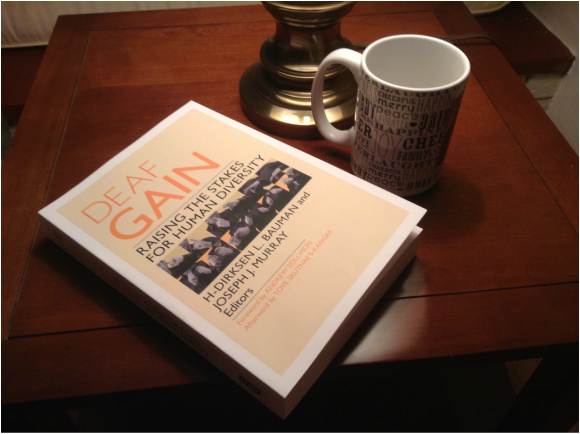Deaf Gain: Raising the Stakes for Human Diversity.
Bauman, H. L., & Murray, J. J. (Eds.). (2014). Deaf gain: Raising the stakes for human diversity. Minneapolis: University of Minnesota Press.
This book presents the perspectives, perceptions and insights of deafness of several experts from various disciplines - linguistics, bioethics, education, public policy and more, that seek to advance the concept of Deaf gain instead of hearing loss, and contends assumptions about normalcy in a world that is dominated by the hearing majority (Baumann & Murray, 2014). Certain chapters explore the benefits of Deaf bilingualism and gives accounts of Deaf people from diverse backgrounds moving from another country such as Cuba to the United States for their education, as well as Deaf Americans who discover American Sign Language and the Deaf community later in life. Issues such as the benefits of learning sign language, Deaf gains in other countries such as Uruguay and Brazil are explored.
The authors and editors of this volume have done a commendable job in putting this book together and showing that being Deaf can open up a world of opportunities instead of limitations. It is a celebration of the diversity and talents within the Deaf community. This book is a must read for any individual who has not had contact with the Deaf community as well as members of the Deaf community and their allies. Hearing readers will find their deficit views of Deaf people challenged and transformed. Perusing this book will also instill a sense of Deaf pride and belonging among Deaf readers. It is an informative text that promotes Deaf awareness and Deaf culture for any aspiring or current educator and international development professional working in the field of Deaf education or among Deaf communities on a global scale.

